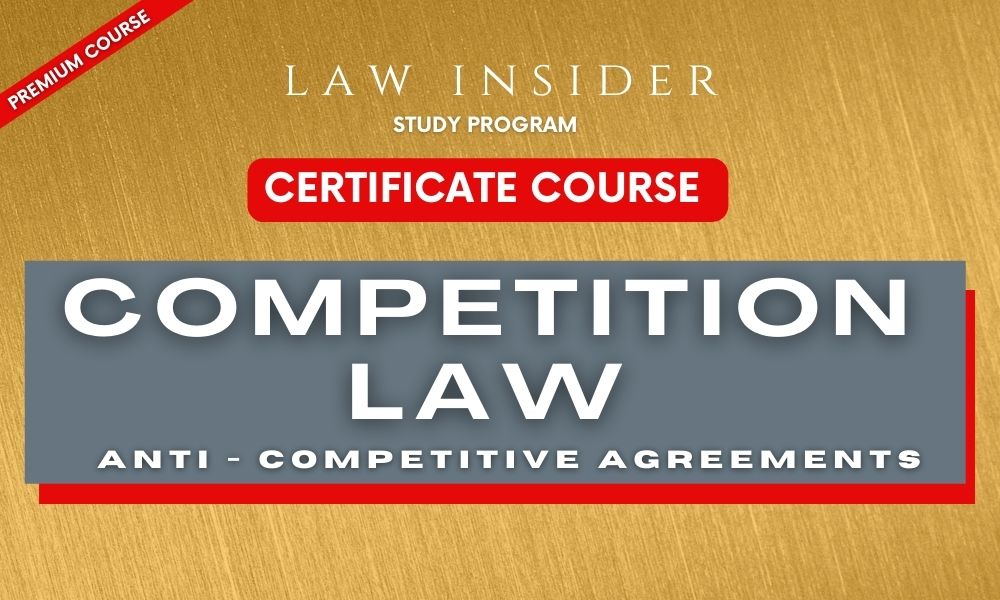INTRODUCTION:
Anti-competitive agreements are agreements among competitors to prevent, restrict or distort competition. Section 34 of the Competition Act prohibits agreements, decisions and practices that are anti-competitive.
A particularly serious type of anti-competitive agreement would be those made by cartels. Cartel agreements are usually to fix prices, to rig competitive tendering process, to divide up markets or to limit production.
As a result, the cartelists have little or no incentive to lower prices or provide better quality goods or services. Based on economic studies, cartels overcharge by 30 per cent on average. There are four main types of cartel agreements:
- Price Fixing
- Bid Rigging
- Market Sharing
- Production Control
Competition in a market can be restricted in various other ways other than those set out above. For instance, there may be other types of agreements among competitors such as price guidelines or recommendations, joint purchasing or selling, setting technical or design standards, and agreement to share business information.
CCCS will take action in cases where there is an appreciable adverse effect on competition, that is, where competition is harmed considerably.
In the case of price guidelines or recommendations, CCCS has found price recommendations and fee guidelines, mandatory or voluntary, to be generally harmful to competition, and encourages all businesses to set their prices independently.
COURSE OBJECTIVE:
-
- Learn how to perform advisory work around the interpretation of complex orders of CCI, COMPAT/ NCLAT and Supreme Court
- Learn how to perform a review of different kinds of contracts and identify anti-competitive clauses
- Provide easily understandable advice to businessmen on market practices which would amount to an abuse of dominant position, and learn how to propose workarounds
- Learn how dawn raids are conducted and how to advise organizations and their officials to be prepared for such raids.
- Learn how to request leniency before the commission for a client, the procedural aspects of leniency litigation and familiarize yourself with drafting leniency petitions.
- Learn how to shape advisories to potential clients seeking queries.
- Understand the powers of the Director-General (DG) while conducting investigations and deal with the DG effectively in ongoing investigations
- How to comprehend economic data for the purpose of drafting and arguments before CCI
COURSE OUTLINE:
The detailed Course outline is as follows:
SESSIONS DETAILS:
Session 1 on 19th MARCH 2022 (2 p.m to 5 p.m)
Session 2 on 20TH MARCH 2022 (2 p.m to 5 p.m)
SESSION 1: (2.5 hours)
1. Indian Competition Regulatory Regime- History and Overview of Competitions laws , AAEC; role of enforcement authority CCI ; dispute management through various courts and COMPAT.
2. Regulating :-
A. Anti – competitive agreements :- horizontal and vertical agreements , cartel arrangements.
B. abuse of dominant position:- Prohibition of practices
C. abuse of combinations (mergers, acquisitions and amalgamations:- Filing thresholds, de minimis test , exemptions and merger review
3. Drafting of Complaints for Inquiry by Commission under Section 19 and 20 Competition Act read with Section 3-6 of the Act.
4. Procedure for Inquiry and Investigation, Report by CCI.
SESSION 2:( 2.5 hours)
5. Liabilities and penalties under the act; leniency and lesser penalty regulations
6. Drafting of Appeals to Appellate Tribunal and Supreme Court of india under Section 53 T of the Act.
7. Lacunas and Reforms; Competition Amendment Bills and way ahead.
COURSE SUGGESTED FOR:
Legal Professionals/Advocates
Law Students
Businessman
CA
CS
Government Officials
QUESTION AND ANSWER SESSION:
Question and Answer session will be there after every session.
SPEAKER:
NEHA GYAMLANI: She is a partner at J&G ASSOCIATES, Corporate Advisory , Tech and Competition Law enthusiast
SPECIALISATION:
- Legal Consulting, Corporate Law, Real Estate, Negotiation, Bankruptcy Law, Business Law, Intellectual Property Law, Criminal Defense Law, Tax Law
Event Concluded

